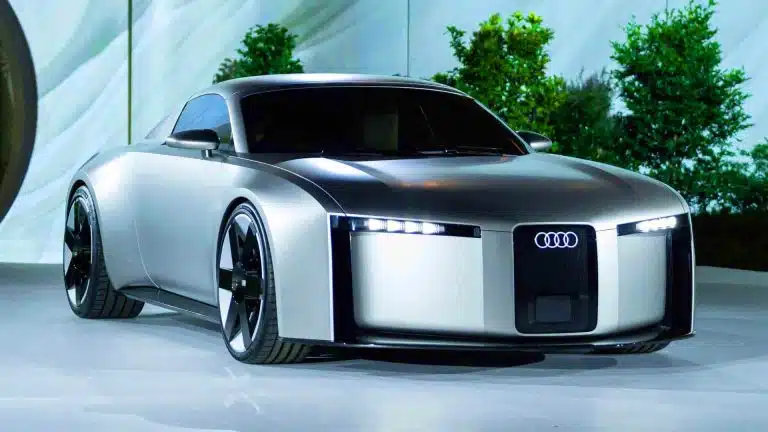| IN A NUTSHELL |
|
In recent years, the automotive industry has experienced a seismic shift toward electric vehicles (EVs) as manufacturers and governments strive to reduce carbon emissions. Audi, a prominent player in the market, had originally planned to phase out combustion engines by 2032. However, this ambitious target has since been revised. Audi now plans to continue selling combustion-engine cars for another decade while maintaining its commitment to EVs as the future of transportation. This pivot reflects broader industry dynamics and regulatory pressures, particularly within the European Union, where the debate over the 2035 sales ban on new combustion vehicles remains heated.
Audi’s Revised Strategy and Industry Context
Recently, Audi announced a revision to its initial plan to cease the production of combustion-engine vehicles by 2032. According to CEO Gernot Döllner, the company will maintain the flexibility to sell these vehicles for up to another ten years. This shift highlights the challenges and complexities automakers face in transitioning to fully electric fleets. Despite this adjustment, Döllner remains a staunch advocate for electric vehicles, viewing them as the optimal technology for reducing CO₂ emissions in the transport sector.
This stance aligns with the European Union’s goal to ban new combustion vehicles by 2035. However, not all automakers share Audi’s enthusiasm. Companies like BMW and Mercedes have expressed opposition to the 2035 deadline, citing concerns over feasibility and market readiness. Amidst these differing opinions, Audi’s commitment to electric vehicles underscores a broader industry trend toward sustainable transportation solutions.
The Role of Regulation and Technology
Regulatory frameworks play a crucial role in shaping the automotive industry’s trajectory toward electrification. European Commission President Ursula von der Leyen recently met with leading automotive executives to discuss the 2035 deadline for phasing out combustion engines. Although the target remains unchanged, the scheduled 2026 review has been moved up to this year, suggesting that adjustments could be on the horizon.
Technological innovation also influences this transition. The development of plug-in hybrids and range-extending EVs offers a potential compromise. These vehicles utilize combustion engines as generators rather than direct power sources, providing a bridge between traditional and fully electric models. Notably, the Volkswagen Group, Audi’s parent company, is advancing its Scalable Systems Platform (SSP) to support such innovations. Audi’s potential role in launching an electric A4 model in Europe exemplifies the brand’s commitment to integrating new technologies into its lineup.
Market Dynamics and Challenges
Audi’s decision to revise its all-electric commitment reflects broader market dynamics and challenges. Global demand for electric vehicles is on the rise, yet Audi’s EV deliveries saw a 7.8 percent decline last year, totaling 164,480 units. EVs accounted for only 9.7 percent of Audi’s total deliveries, underscoring the continued dominance of combustion-engine vehicles in its portfolio.
As part of the larger Volkswagen empire, Audi benefits from the flexibility to offer gas, plug-in hybrid, and electric models. Currently, combustion engines remain the backbone of Audi’s lineup, boasting higher popularity and profit margins compared to their electric counterparts. This financial leverage allows Audi to invest in future EV development while maintaining profitability in the present.
Supercar maintenance: Tips for keeping your ride in top shape
Looking Ahead: The Path to Electrification
Audi’s recalibrated approach to vehicle electrification illustrates the complex interplay between regulatory mandates, technological advancements, and market realities. While the company has extended its timeline for phasing out combustion engines, its commitment to electric vehicles remains steadfast. The evolving landscape of automotive technology, coupled with regulatory pressures, will continue to shape Audi’s strategy and the industry’s future.
As Audi navigates this transition, key questions linger. How will regulatory changes impact automakers’ strategies? What role will technological advancements play in accelerating the shift to electrification? These considerations will be pivotal as the industry moves toward a more sustainable future.
The automotive industry’s journey toward electrification is fraught with challenges and opportunities. Audi’s recent strategy shift highlights the complexities involved in balancing regulatory requirements and market demand. As the industry continues to evolve, the question remains: How will automakers adapt to ensure a seamless transition to a sustainable, electrified future?
Did you like it? 4.6/5 (20)






Is Audi’s decision a step back for the EV movement or just a realistic approach? 🤔
Wow, Audi is really going against the grain here! Will this decision affect their market share in the EV sector?
Finally, a car company that understands not everyone is ready for EVs yet! Thanks, Audi!
It’s a bold move, but I wonder if it’s the right one. 🤔
Why would Audi extend combustion sales when the world is moving toward EVs?
Why does Audi think they can buck the trend when everyone else is going electric?
I hope this isn’t just a way to delay progress. Come on, Audi!
Thank you, Audi! I’m not ready to give up the sound of a V8 just yet. 🚗💨
Does anyone else think this is a smart move considering current infrastructure? 🚗
Are they just delaying the inevitable? Electric is the future, after all.
Wait, what happened to Audi’s “all-in” on EVs strategy? Did I miss something?
So, Audi is going to be the last one to turn off the lights on combustion engines, huh?